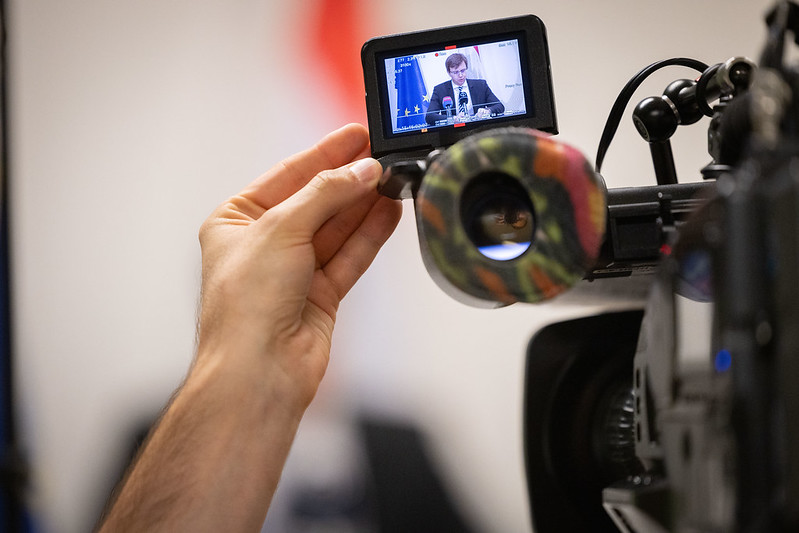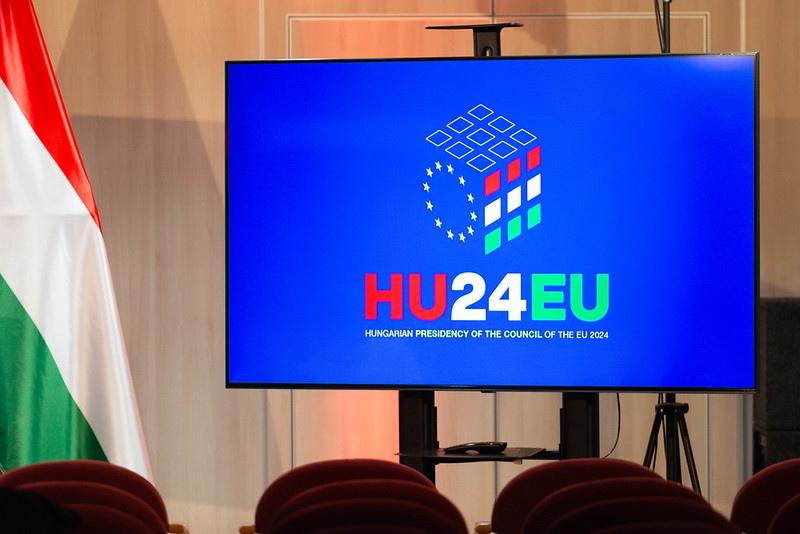Hungary has appropriated Trump’s slogan for its upcoming EU presidency but promises to be an honest broker and facilitate concrete steps towards enlargement. Other priorities include improving Europe’s competitiveness, securing cohesion policy, and boosting the defence industry – and the involvement of citizens will be a key challenge as well.
Hungarian EU Affairs Minister János Bóka presented the government’s official programme, stressing its vital interest in maintaining a “strong and competitive” Europe. Bóka revealed the official theme of the Hungarian presidency as a slightly reworded campaign slogan of former US president Donald Trump, “Make Europe Great Again”. As Bóka explained: “It is a reference to an active presidency. It actually shows the expectation that together we should be stronger than individually but that we should be allowed to remain who we are when we come together.”

There is widespread suspicion among many in Europe about the motives and policies of Viktor Orbán’s government. Some parties within the EU had even wanted to strip Hungary of its turn in the presidency as punishment for its continuous veto threats over aid to Ukraine, its cozying up to Russia and its democratic backsliding.
The presidency also unveiled the Rubik’s cube as its logo, which Bóka described as “the essence of Hungarian genius”.
The six-month rotating presidency of the Council of the EU, starting on the 1st of July, comes at a time of institutional transition, with a new European Parliament and European Commission in the process of being formed. “This is an extraordinary situation, with a war in the neighbourhood, when we have to provide stability,” said Bóka.
One step towards stability could be a softening of the Hungarian government’s stance on a number of EU priorities. Prime Minister Orbán has already indicated that he simply cannot support another term for the current European Commission president, Ursula von der Leyen, but it seems that Budapest has given its objection. “The president of the Commission is elected by qualified majority, Hungary cannot veto,” János Bóka admitted.
The Hungarian government sees its upcoming presidency as an opportunity to restore some much-needed credibility. “We can show direction, initiate discussions, but we will always act as an honest broker,” promised the EU Affairs Minister.
The main narrative of the presidency is to “guarantee peace and security in Europe”, but the top priority is economy-driven: improving the continent’s competitiveness. Boosting the defence industry and joint European defence procurement are also listed in the seven-point programme, as are partnership agreements to reduce migration, a calculable enlargement policy, securing cohesion policy, tackling the demographic challenge and presenting a farmer-friendly agricultural policy. Full membership of free-travel Schengen Area for Romania and Bulgaria is also on the agenda.
Hungary is keen on making progress on enlargement, with its focus on the Western Balkans. “We want a merit-based and objective enlargement strategy with specific targets in the Western Balkans,” said Bóka. Clear goals are to open a new cluster with Serbia and to close most chapters with Montenegro, while setting up an intergovernmental conference with North Macedonia and Albania.
The involvement of the civil society will be a key challenge for the Hungarian presidency. Hungary is expected to follow the great example of the Belgian EU presidency which placed a significant emphasis on the inclusion of citizens in democratic participation. Civil society organisations can use the presidency as an excellent opportunity to put strategic topics on the agenda – this is what the European House Budapest intends to do with the Danube Strategy, one of the success stories of the previous, 2011 Hungarian EU presidency and still a decisive issue in the Central and Eastern European region.
